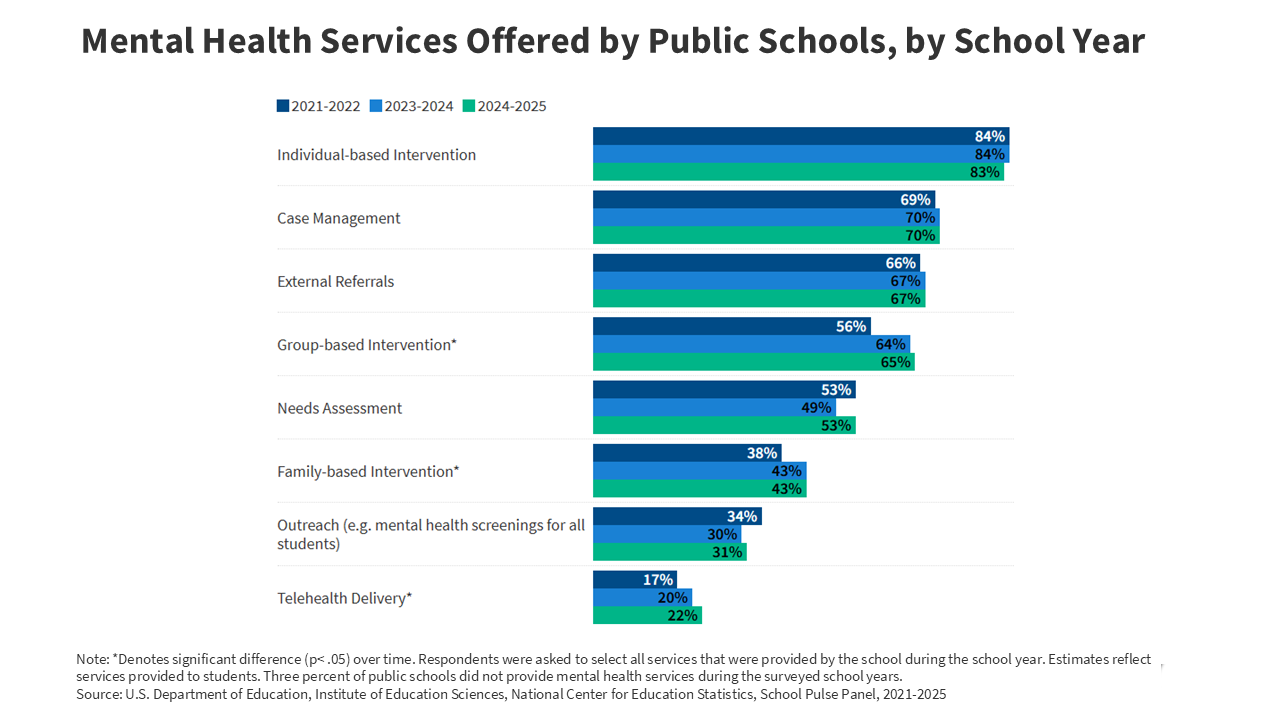Inside the Classroom Crisis: How Schools Are Battling the Mental Health Epidemic

Navigating the Complex World of School-Based Mental Health Services
In an era where student well-being is increasingly recognized as crucial to academic success, understanding the landscape of mental health services in schools has never been more important. This comprehensive exploration delves into the intricate network of mental health support available to students, examining the services offered, challenges in utilization, persistent barriers, and the critical role of funding.
Drawing from extensive survey data collected directly from public school administrators, our analysis provides a nuanced look at the current state of mental health care in educational settings. We uncover the complex interplay between federal initiatives, local resources, and the growing need for comprehensive mental health support for students.
The research highlights the multifaceted challenges schools face in delivering effective mental health services. From limited funding and staffing constraints to the stigma surrounding mental health, educational institutions are navigating a complex terrain of support and intervention. Recent federal actions have begun to reshape this landscape, offering new opportunities and potential solutions to long-standing challenges.
By shedding light on these critical issues, we aim to provide insights that can help educators, policymakers, and community leaders develop more robust and responsive mental health support systems for students. The goal is clear: ensuring that every student has access to the mental health resources they need to thrive academically and personally.








